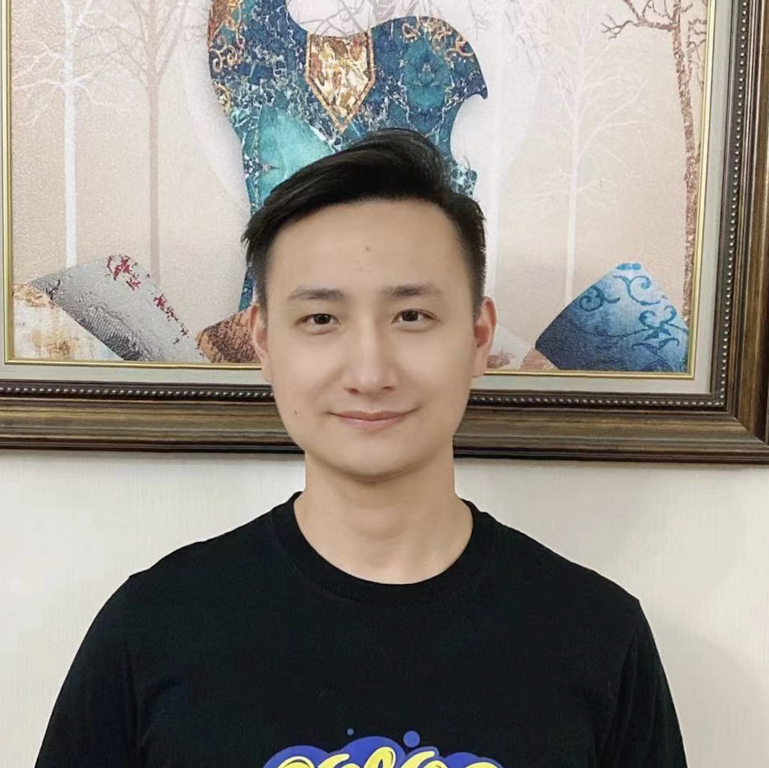You're kidding right? :D
20 is good age start; Forget about the army of 14 year olds out there building 3D engines, MMO's, and the next Halo game - anyone can follow a tutorial off the net.
Having an interest in Physics, I'm assuming you can do maths and can think logically, then you're practically already a programmer; you should breeze through learning pretty easily then.
Programming is just a tool, a tool to get a job done with. Would you be impressed by someone who says that they've been using a screw driver or power drill since they were 16? :P
Plus, you never actually stop learning to program. It doesn't matter if someone has 10 years of coding on you, cos they themselves are still learning. You never get to stage where you can sit back and say "I know everything about programming, time for something else now".
I have also found a lot of people in the game industry have just fallen into it, after other careers, not having ever set out to originally develop video games. I know a lot of artists in particular, who work on games now quite late in their career and are loving it.
It really never is too late to start.
Even if you where 30, I'd still say you were crazy for thinking it's too late.
---
Lol, feels stupid telling a 20 year old that he's not too old. What is going on O_o ?
Kinda loosing faith about...
Generally, I think, when people start that young they tend to do a lot of "doing" and not necessarily proper "learning". They tend to gain ground not so much by understanding concepts, but by trail and error, observation, and modification of existing sources.
As they get older, and perhaps as they discover more credible resources and develop their critical thinking skills, their understanding comes more into line with reality, but many are not so lucky, and their understanding of the inner workings of things, the whys and the hows, are sometimes not much more advanced than a sort of superstition.
The general lack of structure, guidance and mentoring often leaves these early-bloomers with poor habits, such as the tendancy to dive into the code rather than designing first, to tend towards "easy fix" solutions rather than long-term ones, not recognizing paterns, lack of refactoring and other issues.
Its probably safe to say that, save a truly rare case, those students who started in their early teens have as much to *un-learn* as you have to learn. Their advantage may be that they are in the habit of breaking down problems into tasks that a computer can undertake, but that will have to be made to fit into the new understanding that will meet them as they progress through college. Your advantage, as a fresh recruit to the world of programming, is that your mental model of computation will grow along with your ability to break down and describe problems to the machine, and that your own mental capacity, at age 20, along with a structured and guided learning environment, will afford you much greater and clearer insights much earlier in your programming career.
As they get older, and perhaps as they discover more credible resources and develop their critical thinking skills, their understanding comes more into line with reality, but many are not so lucky, and their understanding of the inner workings of things, the whys and the hows, are sometimes not much more advanced than a sort of superstition.
The general lack of structure, guidance and mentoring often leaves these early-bloomers with poor habits, such as the tendancy to dive into the code rather than designing first, to tend towards "easy fix" solutions rather than long-term ones, not recognizing paterns, lack of refactoring and other issues.
Its probably safe to say that, save a truly rare case, those students who started in their early teens have as much to *un-learn* as you have to learn. Their advantage may be that they are in the habit of breaking down problems into tasks that a computer can undertake, but that will have to be made to fit into the new understanding that will meet them as they progress through college. Your advantage, as a fresh recruit to the world of programming, is that your mental model of computation will grow along with your ability to break down and describe problems to the machine, and that your own mental capacity, at age 20, along with a structured and guided learning environment, will afford you much greater and clearer insights much earlier in your programming career.
throw table_exception("(? ???)? ? ???");
I'm proud of having programmed since I was 13, but seriously, if you have it, you have it. The closest people I have to programming mentors got fairly late starts. After a couple years, the biggest difference between the kids and the real programmers is persistence (not that I have a ton of experience, but that's basically how it is, right?).
Of course, if you don't actually enjoy it, then by all means study something else. But don't let the kids discourage you.
Of course, if you don't actually enjoy it, then by all means study something else. But don't let the kids discourage you.
Quote: Original post by Dekasa
I believe you're much more likely to fall into bad habits of programming if you learn it when you're younger. I'm 22 now and I wouldn't touch any of the code I wrote when I was in my teens.
So, learn how to code the "right" way. Learning to use good naming conventions and writing well-documented code are more important than when you started learning.
I agree with you...
peter_jim89@hotmail.com
Quote: Original post by -KAS-
You're kidding right? :D
20 is good age start; Forget about the army of 14 year olds out there building 3D engines, MMO's, and the next Halo game - anyone can follow a tutorial off the net.
Having an interest in Physics, I'm assuming you can do maths and can think logically, then you're practically already a programmer; you should breeze through learning pretty easily then.
Programming is just a tool, a tool to get a job done with. Would you be impressed by someone who says that they've been using a screw driver or power drill since they were 16? :P
Plus, you never actually stop learning to program. It doesn't matter if someone has 10 years of coding on you, cos they themselves are still learning. You never get to stage where you can sit back and say "I know everything about programming, time for something else now".
I have also found a lot of people in the game industry have just fallen into it, after other careers, not having ever set out to originally develop video games. I know a lot of artists in particular, who work on games now quite late in their career and are loving it.
It really never is too late to start.
Even if you where 30, I'd still say you were crazy for thinking it's too late.
---
Lol, feels stupid telling a 20 year old that he's not too old. What is going on O_o ?
Thats right...if someone is in Physics and does not know about math then he is wasting his time..I know my math anyways :]
peter_jim89@hotmail.com
Quote: Original post by theOcelot
I'm proud of having programmed since I was 13, but seriously, if you have it, you have it. The closest people I have to programming mentors got fairly late starts. After a couple years, the biggest difference between the kids and the real programmers is persistence (not that I have a ton of experience, but that's basically how it is, right?).
Of course, if you don't actually enjoy it, then by all means study something else. But don't let the kids discourage you.
I do enjoy it a lot. That is why I m working hard in getting the knowledge right and not fast!
peter_jim89@hotmail.com
Quote: Original post by Ravyne
Generally, I think, when people start that young they tend to do a lot of "doing" and not necessarily proper "learning". They tend to gain ground not so much by understanding concepts, but by trail and error, observation, and modification of existing sources.
As they get older, and perhaps as they discover more credible resources and develop their critical thinking skills, their understanding comes more into line with reality, but many are not so lucky, and their understanding of the inner workings of things, the whys and the hows, are sometimes not much more advanced than a sort of superstition.
The general lack of structure, guidance and mentoring often leaves these early-bloomers with poor habits, such as the tendancy to dive into the code rather than designing first, to tend towards "easy fix" solutions rather than long-term ones, not recognizing paterns, lack of refactoring and other issues.
Its probably safe to say that, save a truly rare case, those students who started in their early teens have as much to *un-learn* as you have to learn. Their advantage may be that they are in the habit of breaking down problems into tasks that a computer can undertake, but that will have to be made to fit into the new understanding that will meet them as they progress through college. Your advantage, as a fresh recruit to the world of programming, is that your mental model of computation will grow along with your ability to break down and describe problems to the machine, and that your own mental capacity, at age 20, along with a structured and guided learning environment, will afford you much greater and clearer insights much earlier in your programming career.
Thank you for the reply. I appreciate it!
peter_jim89@hotmail.com
Quote: Original post by Greek89
However i fell like im kinda late to learn the game development stuff that will get me a job in the gaming industry.
I did computer science at uni having never programmed before (so I was 19 when I started). I just liked computers I had never dreams of making games since I was 2 months old or anything. My final year (2003) picked the graphics subjects because they sounded more fun then the other electives. 2004 used my final graphics programming assignment and some home demo's to get hired as a junior programmer at a games company.
We also have a programmer at work here who started coding in his 30's. Like everyone else said - if you like it do it! The rest will work itself out.
Quote: Original post by Greek89
My main focus is to get a job as a game programmer
Why is this thread in Game Design? Moving to...
...Breaking In?
...For Beginners?
...The Lounge?
A, I guess.
-- Tom Sloper -- sloperama.com
Time is nothing, learning is everything. Just learn lots of stuff.
Remember when someone says they've been programming for x years they don't mean all the time. So who knows if they've really learnt so much.
I started developing at 22, i'm now 28 and I have just finished stint as a tech lead on a relatively big project. I've done loads of stuff in those past six years.
Remember when someone says they've been programming for x years they don't mean all the time. So who knows if they've really learnt so much.
I started developing at 22, i'm now 28 and I have just finished stint as a tech lead on a relatively big project. I've done loads of stuff in those past six years.
This topic is closed to new replies.
Advertisement
Popular Topics
Advertisement









